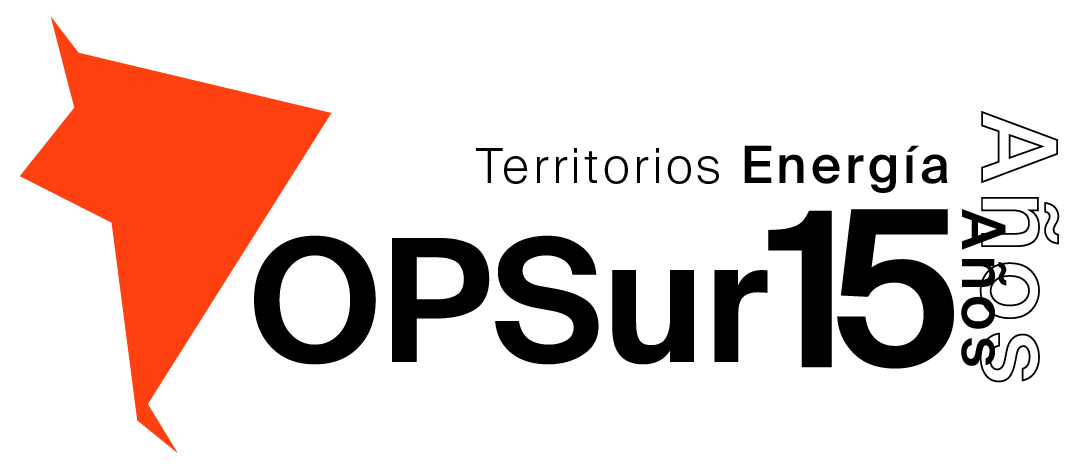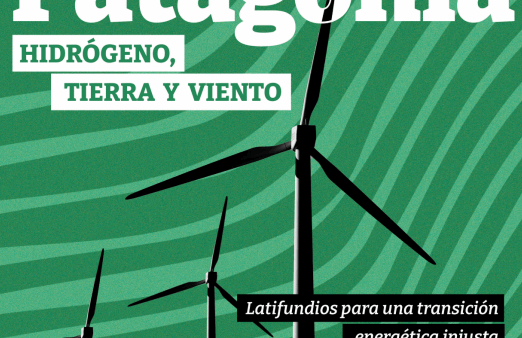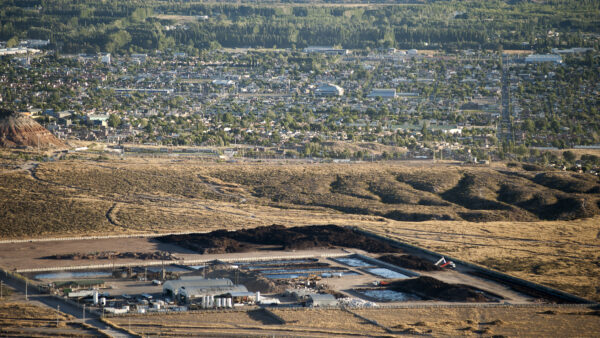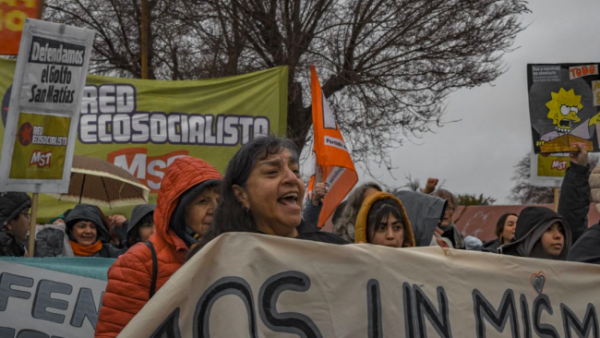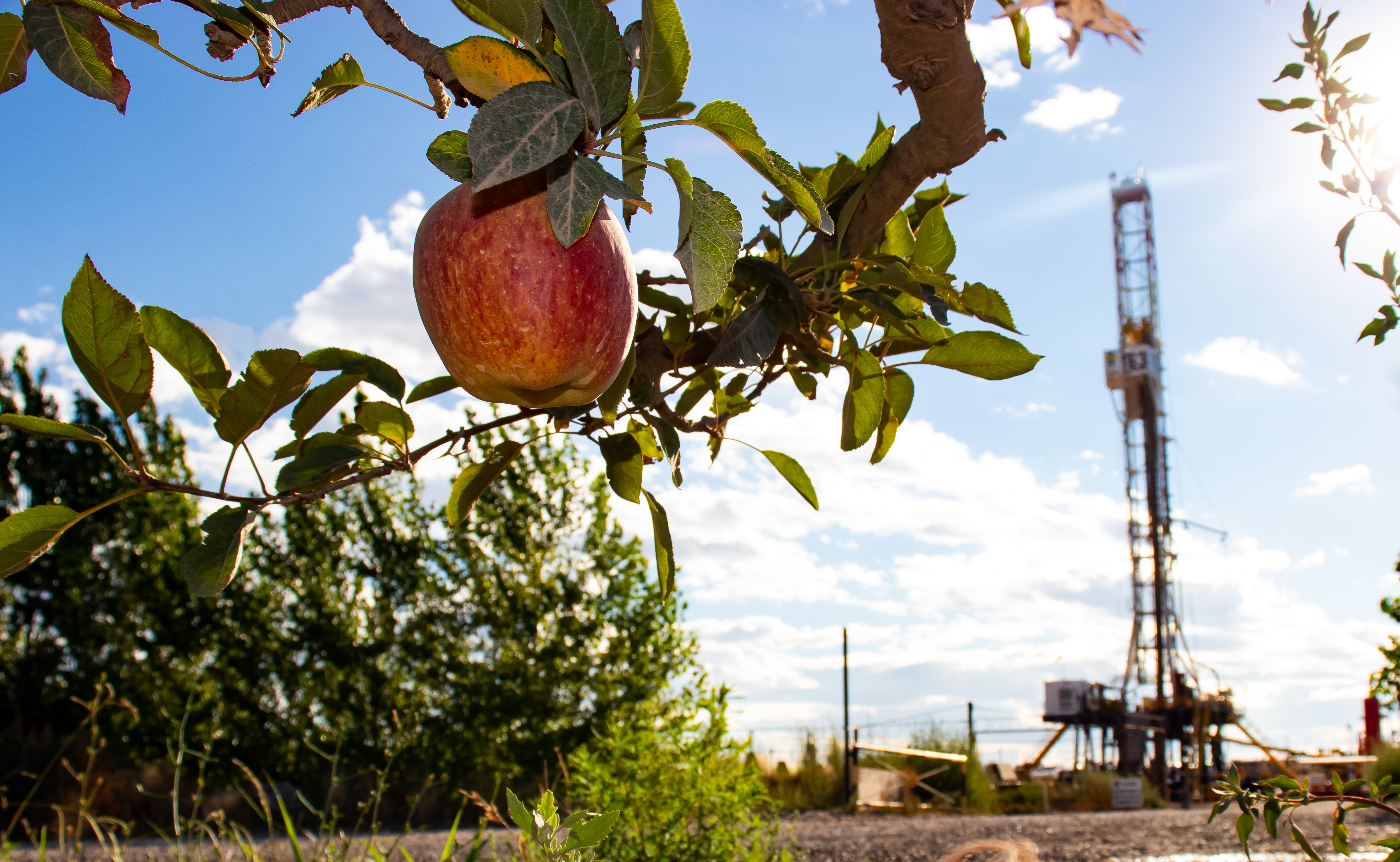
By the Río Negro Production and Energy Transition Working Group
Río Negro is on its way to quickly becoming an enclave economy: with fracking, or hydraulic fracturing, hydrocarbons have gained ground in the province’s economic outcomes. In theory, as proponents claim, fostering this activity leads to investment placement and to increasing hydrocarbon production, which should have a multiplier effect on other sectors of the economy, as well as a positive impact on the province’s finances. Our main working hypothesis is that, as illustrated by other similar experiences, the expansion of fracking will severely threaten a host of productive activities that are the core of a relatively diversified economy and that might otherwise serve as a starting point to project alternative, more sustainable scenarios than becoming an oil enclave. A positive impact on the province’s finances will not suffice to offset these consequences for production in the long term.
The Río Negro Production and Energy Transition Working Group was created with the aim of promoting alternative scenarios. The Working Group brings together about thirty experts coming from various fields of trade union and academic intervention who are trying to spark off the debate. The key concept structuring the discussions during the three meetings held over the course of 2018 and 2019 was that of a “fair transition”. From this perspective, we not only seek to comprehensively call into question the sustainability of this development model; we also intend to open the political debate around it. The alternative we are facing shouldn’t be reduced to the technical, commercial or environmental feasibility of the expansion of the oil frontier: it also encompasses the transcendental issue of the autonomy of the communities and social groups who inhabit the territory. In this light, this set of issues widens the debate to cover the immediate ways in which the reproduction of life is organized and allows a genuine construction by the people.
Fracking is maldevelopment
In environmental and territorial terms, it is implausible to attribute the devastating consequences of massive hydraulic fracture to implementation and control deficits; neither should we dismiss them as unfounded claims by radicalized groups merely pushing their agenda. In the last few years, evidence has been piling up in other parts of the world that fracking has a direct impact on the territory, as well as indirect effects on surrounding areas. A good example is the Compendium of Scientific, Medical, and Media Findings Demonstrating Risks and Harms of Fracking, by health professionals of New York (CHPNY and PSR, 2015 and 2019).
Fracking does not even offer a favorable outlook from the economic point of view. Because of the deficit in associated productive linkages, in provinces with strong oil industries, even in a context of investment and extraction growth, the oil sector tends to have a low impact on the economy as a whole in terms of direct jobs and income. This means that a dynamic, well-paid sector tends to crystallize, whose most significant impact on job creation, however, does not come directly from hydrocarbon exploitation; rather, it is induced through investment and the growth of the public sector during the improvement cycles in public finances. On the other hand, the low labor absorption capacity in the main excess-creating branch of the industry and the proliferation of non-productive activities in the private sector lead to a persistent tendency to fiscal crises in the State which intensify the pressure on the enclave’s outcomes or, alternatively, are temporarily alleviated through mounting public borrowing. Far from shielding the treasury funds, the escalation of investment on non-conventional hydrocarbons exposes them even more to the volatility of international prices and subsidies within the sector.
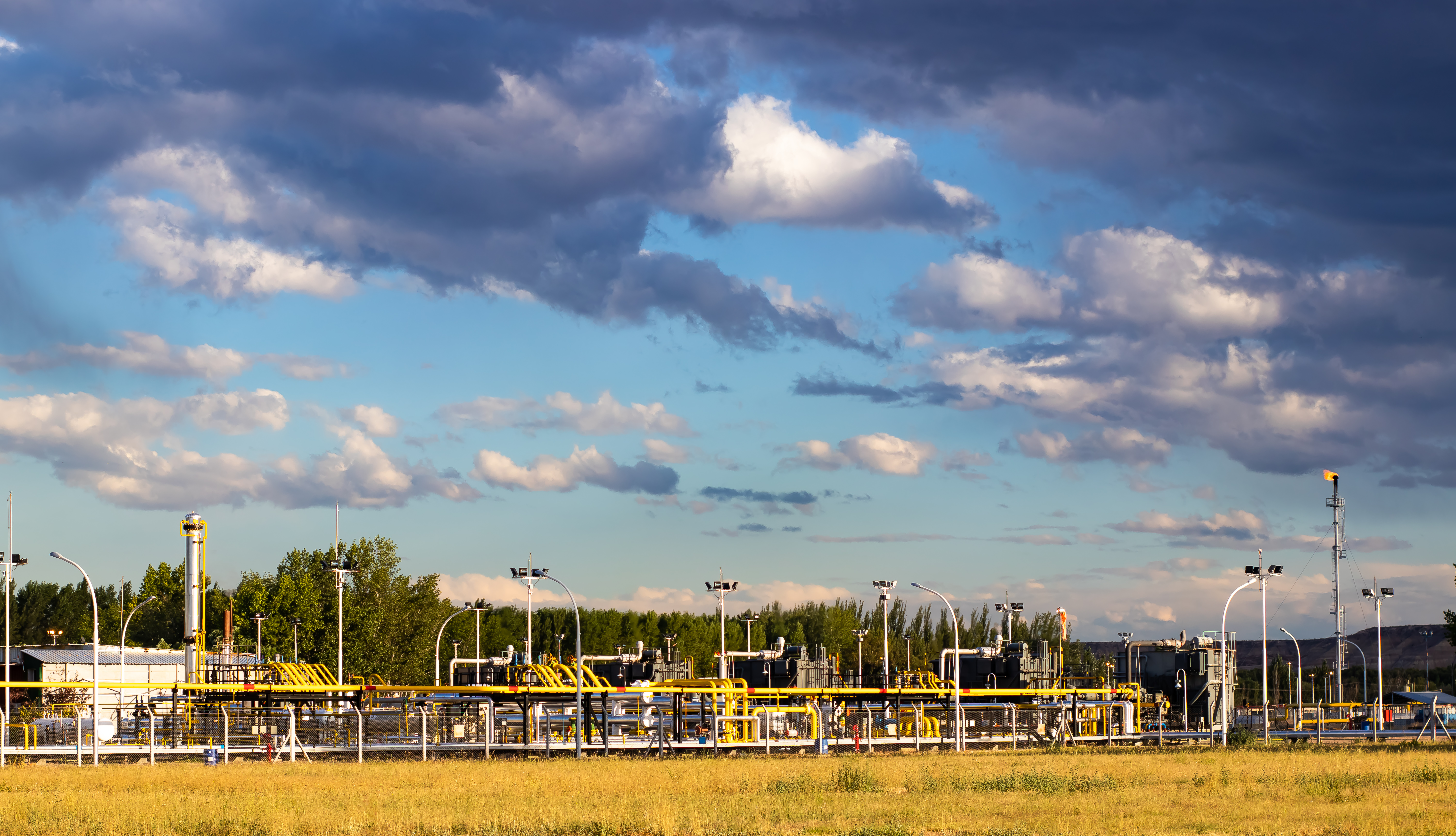
The advance of the hydrocarbon frontier violates a provincial economic structure that is relatively diversified and sustainable in a number of ways. First, because it foregoes participatory mechanisms that may allow the opinion of those affected by the establishment of the activity to be known, or else because force is used—in some of its various shapes: whether physical, economic, or judicial—in those places where the community has already voiced its opposition. Second, because it operates on the basis of the crisis of the activities that used to support production and invigorate the province’s economy. In the Alto Valle region, the withdrawal of the provincial state has contributed to the process of concentration, internationalization and disappearance of small and medium-scale production in the fruit and vegetable sector. This crisis enables the extortion used to legitimize the establishment of the extractive industry at the social level. In the government and corporate rhetoric, the job and resource creation that is expected as the positive outcome of exploitation calls for the population’s tolerance in the face of the socio-environmental “costs” in order to support an allegedly “beneficial” intervention by the State.
Since potential benefits are overestimated while short, medium and long-term impacts are underestimated, a spiraling effect takes place that causes, among other worrying issues, the loss of productive land. Land parceling and, in certain areas such as Allen, non-conventional hydrocarbon exploitation are the highest-impact factors in the decrease in fertile, irrigated soil. Besides the social burden created by large numbers of people being expelled from agricultural activity, these losses alter the ecosystem and promote the spread of pests. According to official calculations, in the 2011-2016 period, there were 4,298 hectares of planted area lost, or 15,000 when considering those in a state of neglect (Neuquén and Río Negro, 2018). In the city of Allen, there are about 6,171 productive hectares, but 409 hectares of fruit trees—6.3% of the total—were lost between 2009 and 2014 (Rodil, 2015). The largest loss in productive lands coincides with the implementation of incentive plans for gas exploitation by the national Government.
This also undermines carbon balance. The capture capacity of the fruit and vegetable sector creates a positive balance in terms of the region’s carbon footprint. Due to the kind of irrigation that has been implemented at the Alto Valle for a century thanks to public infrastructure works and human labor, the soil produces an amount of organic matter that places it among the most fertile of the world, rated as prime class (Mendía et al., 2017). At the same time, fruit growing with irrigation by flooding with full inter-row vegetation cover is an excellent management technique to control gas emissions and contribute to mitigating global warming. The region boasts extraordinary environmental conditions as regards water and sunshine availability, a set of characteristics that are very conducive to agricultural production.
On the other hand, the advance of mass tight gas extraction in the Estación Fernández Oro area since 2014 has led to a significant number of accidents and incidents, including leaks, spillages, and explosions. The consequences for inhabitants entail material loss, such as homes collapses and breakages; health harm, such as respiratory conditions and stress; and environmental harm, such as soil, water and air pollution. Moreover, this context is compounded by the uncertainty in the province surrounding the control agencies’ auditing capacity.
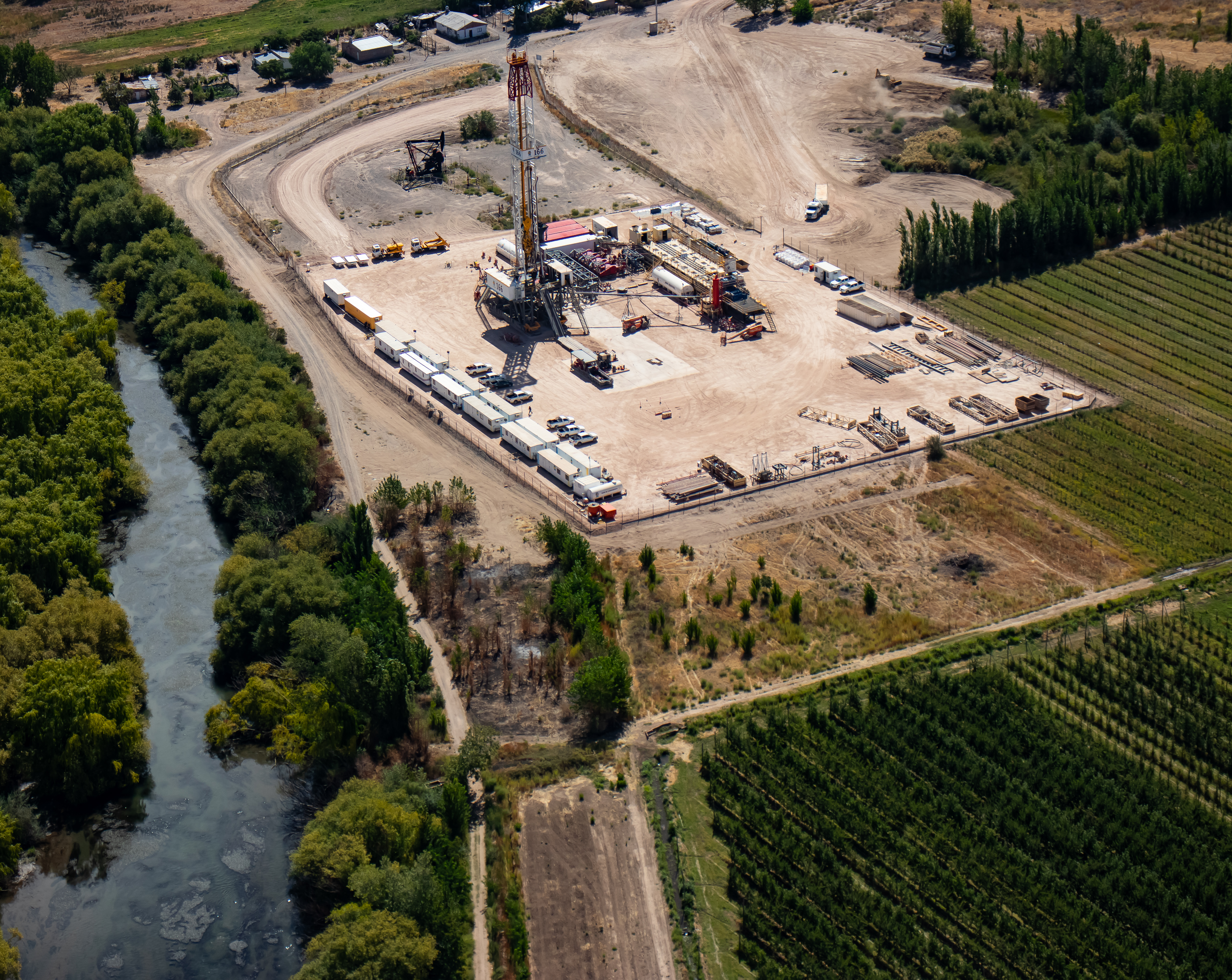
Río Negro needs a sustainable future
All these damages have not gone unnoticed by the population at large, which, as in other places, has given rise to an active anti-fracking movement. After several dissemination activities and protests we carried out, hydraulic fracture was finally banned in the cities of Allen, Cinco Saltos, General Conesa, Coronel Belisle, Chimpay, Choele Choel, Fernández Oro, Lamarque, Luis Beltrán, Pomona, Viedma, and Villa Regina.1 The ordinances in the cities of Allen and Fernández Oro have been taken to court by the State and the company YPF, respectively, and declared unconstitutional by the Superior Provincial Court. The argument in both cases has been that the provincial state has authority over hydrocarbon resources. In Catriel, on the other hand, public opposition succeeded in late 2017 in having the municipal Constitution ban the establishment of oil waste treatment plants.
On this basis, potentially affected local governments have built mechanisms to resist the advance of fracking on their territories.
Alternatives for Río Negro
The idea of limiting the advance of the extractive frontier stems from the determination not to sacrifice environmental and social sustainability at the altar of economic profit. From the point of view of the productive and energetic transition, attaining this would be a necessary but insufficient step. To find the exit to the labyrinth, we must also build alternatives that allow us to support the community’s well-being in the long term and in balance with the environment. Next, we offer a few guidelines for the debate with a view to projecting the transformation of an array of economic activities.
The challenges faced all over the world place food production front and center as we plan for the future. Therefore, an urgent debate is needed surrounding land distribution, water access, and higher equality among social actors in the productive sector—even more so if we take into account the risks at play and the vulnerability of those who produce. No attempt to transform, re-focus or safeguard the sector can or should be made without the various levels of the State, as well as the populations involved, engaging actively in it. Designing inclusive, sovereign, socio-environmentally sustainable and economically fair policies requires for these debates to be a part of the public agenda. Fruit and vegetable growing is a necessary path to attain food sovereignty.
Another alternative for energy production in Río Negro comes from the potential for wind power in the Patagonia, given the frequency and speed of the winds in the region. Additionally, similar projects could be developed to take advantage of waterways and sunshine, such as the Renewable Energy Project for Rural Markets.
Also, the cities and towns of the province have significant potential for development in the area of leisure and tourism with a community approach. Seeing the negative impacts of the dominant models in tourism, it is imperative to reassess old consumption and development patterns, and encourage new ones, based on responsibility and environmental ethics. Large-scale tourism is a trend that should be problematized in its extractive nature. Direct actions must be urgently implemented that allow us to transcend the tourism models where tourists’ satisfaction prevails over the needs of local populations. An alternative plan should foster the local development of host communities, contribute to the protection and conservation of the natural state of the territory, and favor small-scale production with decent working conditions. Sustainability lies in solidarity being an inherent trait of relationships, both in inter-generational terms and regarding the “non-human” (Gudynas, 2010).
Lastly, non-metal mining can be developed with a low environmental impact, provided that there is a strong control, auditing and incentive policy in place so as to minimize the damage and foster activity. The companies working in this segment are usually small and medium enterprises that employ local labor. A provincial state policy might encourage technification in order to reduce the activity’s impact. Alternatively, the State might carry out infrastructure works to contribute to the sector’s growth.
For further debate, we suggest reading the document “Más allá de la renta petrolera: propuesta para la diversificación productiva y la democratización energética” [“Beyond oil rent: A proposal for productive diversification and energy democratization”]. The discussion is open, and all contributions are welcome.
Notas
1. The ban ordinances have been a very significant exercise in popular power as a process that has made it possible to inform the population at large in a both deep and wide manner, besides bringing professionals together and intervening in the local public agenda. Similar projects have also been submitted in General Roca and Cipolletti.
References
Álvarez Mullally, M. (11/05/2018). Se desmorona parte de una casa en Allen. Available online.
Alvarez Mullaly, M.; Arelovich, L.; Cabrera, F., and di Risio, D. (2017). Informe de externalidades megaproyecto Vaca Muerta. Argentina: Enlace por la Justicia Energética y Socioambiental. Available online.
Concerned Health Professionals of New York and Physicians for Social Responsibility (2015). Compendium of scientific, medical, and media findings demonstrating risks and harms of fracking (Unconventional gas and oil extraction). Third edition. Available online.
Gudynas, E. (2010). Desarrollo sostenible: una guía básica de conceptos y tendencias hacia otra economía. Otra economía. Revista Latinoamericana de Economía Social y Solidaria. Vol. IV, n.º 6.
Mendía, J. M. (2012). Estudio de la degradación de suelos y evaluación de la sanidad edáfica con relación a la actividad industrial, petrolera y agrícola en valentina norte, provincia del Neuquén. Neuquén, Argentina: Universidad Nacional del Comahue. Mimeo.
Mendía, J.M.; Jockers, E.; González, A.; Percaz, Z.; Forquera, J., and Sheridan, M. (2017). Balance del carbono en chacras regadas del Valle de Río Negro, Argentina. Primera Aproximación. Libro de Resúmenes del III Congreso Nacional de Ciencia y Tecnología Ambiental. Santa Fe, Argentina, July 31 to August 3, 2017.
Neuquén and Río Negro (2018). Libro blanco de la fruticultura. Available online.
Rodil, D. (2015). Avance de la frontera hidrocarburífera sobre suelo productivo. Estación Fernández Oro, Alto Valle del Río Negro. Libro de Resúmenes de las VII Jornadas Argentino Uruguayas de Economía Ecológica ASAUEE. Neuquén, Argentina.
Svampa, M. and Viale, E. (2014). Maldesarrollo. La Argentina del extractivismo y el despojo. Buenos Aires, Argentina: Katz Editores.

